
There’s so much to think about when it comes to picking out that perfect pup. From choosing the right breed to getting your new family member settled in, everything can seem overwhelming. Especially when you consider how important it is to ensure you’re choosing a reputable breeder, considering questions to ask a dog breeder, and being prepared for any questions a breeder may ask you.
If you’ve found yourself in a panic over the seemingly endless ‘to-do’ list, Puppy Hero has got you covered. In this guide, we’re gonna run through what questions to ask a breeder when buying a puppy.
This question to ask a dog breeder comes up first on our list because it’s one of the most important. If you’ve yet to see the puppies with their mom and are communicating with the breeder online or by phone, you’ll definitely want to arrange a visit before committing to anything.
A breeder making excuses for not allowing you to visit mom and pups is a huge red flag. It could mean that the dogs are being kept in poor conditions, the mother is not old enough or well enough to breed and bond with her little ones, or even that the breeder is running a puppy farm, which is, of course, a big no-no. You could even end up being scammed, with a so-called breeder running off with your money without ever intending to hand over a pup. Heartbreaking!
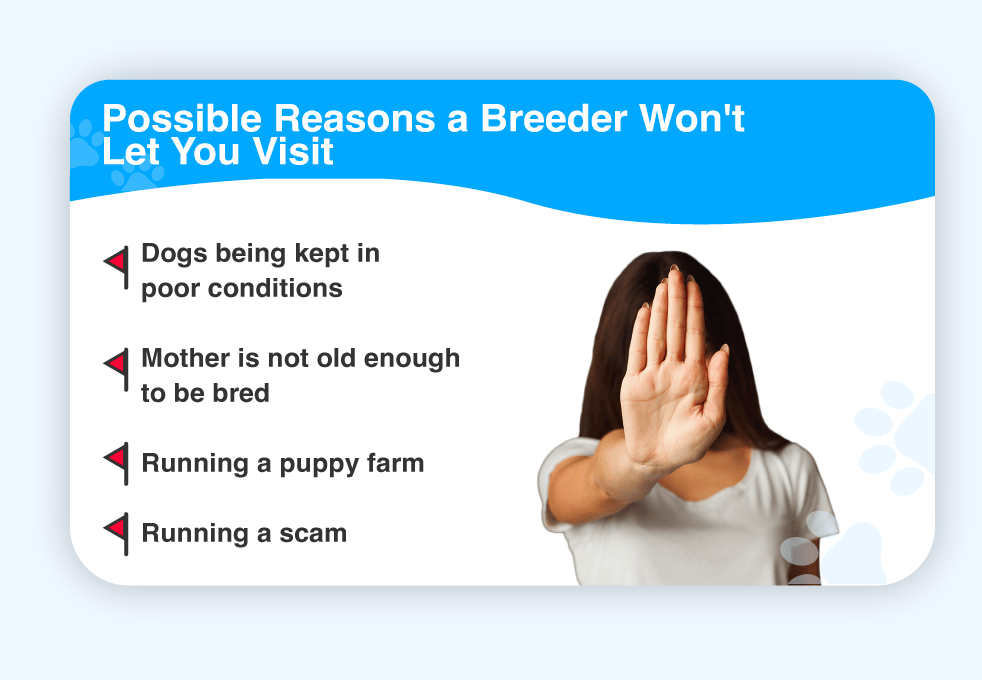
Once you’ve got a visit in the diary, there are a few things to look out for when you get there to ensure your dog has been bred ethically, and that mom and babies have been well taken care of.
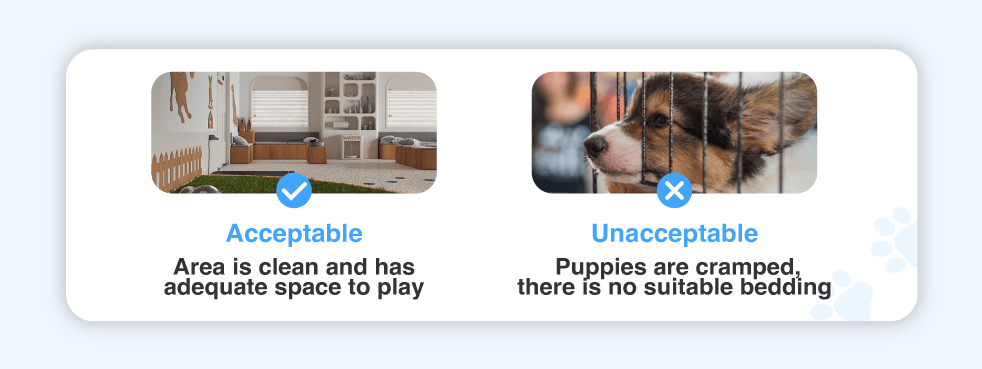
Dogs of all ages need adequate space to play, as well as somewhere safe, clean, and cozy to curl up and go to sleep. If a breeder doesn’t provide suitable bedding and a spacious pen, this means that they aren’t properly caring for the animals.
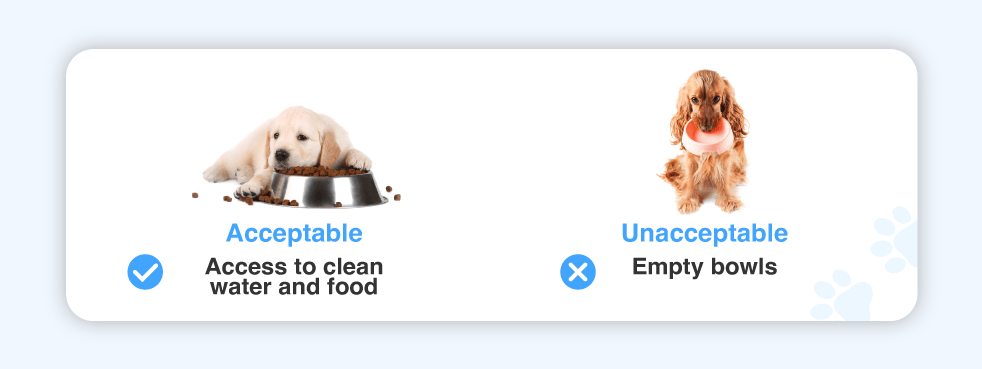
It goes without saying that no dog can grow up healthy and happy without access to good food and water. Spotting empty water bowls at the breeder’s home is another sign that things may not be quite right. A good question to ask a breeder when picking a puppy, is what food they’d recommend for your pet.
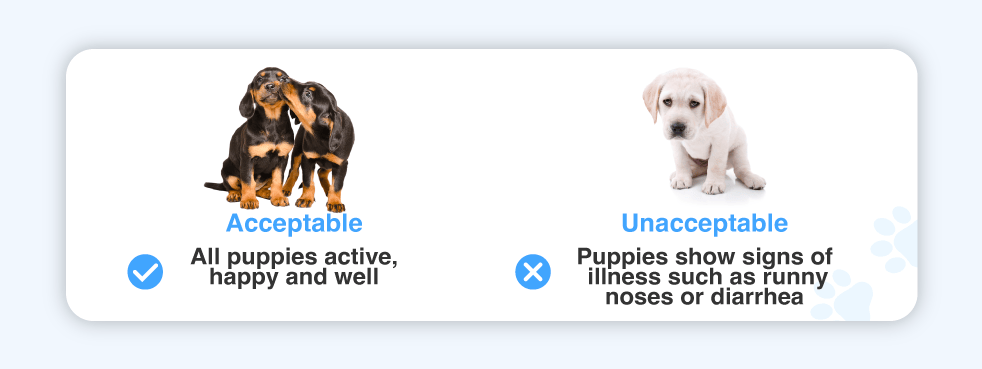
Even if you’ve got your heart set on one puppy in particular, it’s definitely advised that you question the breeder on whether you can meet the whole litter. As well as getting the chance to spend time with a lovely bunch of pups (which is any dog lover’s dream!) you’ll want to make sure that all the puppies are active, happy, and well.
Beware of buying from a breeder if the puppies show any sign of illness, including runny noses, diarrhea, or listlessness. A good question to ask the dog breeder is “how is the health of the whole litter?”
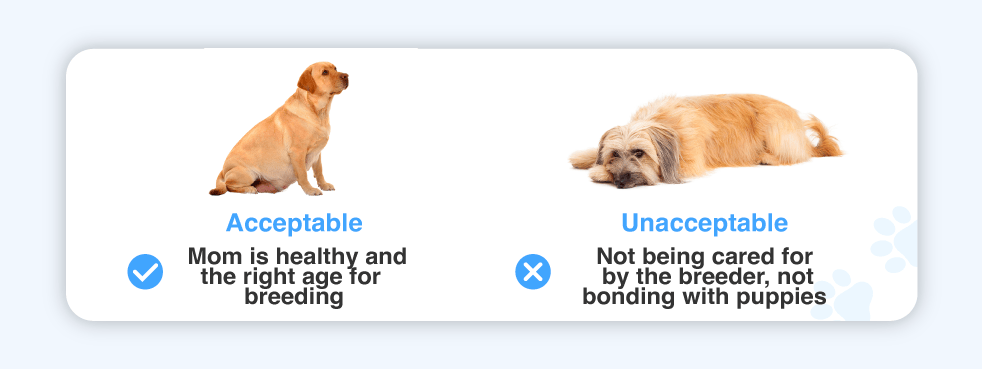
It’s not just the little ones that need to be cared for by the breeder. Ensuring the mother is healthy, the right age for breeding, and bonding well with her litter is also key when ensuring the breeder is ethical. A good question to ask a dog breeder when picking a puppy is how well the mom has coped with her little ones, as it’s always a good sign when a dog mom has bonded with and takes good care of her babies.
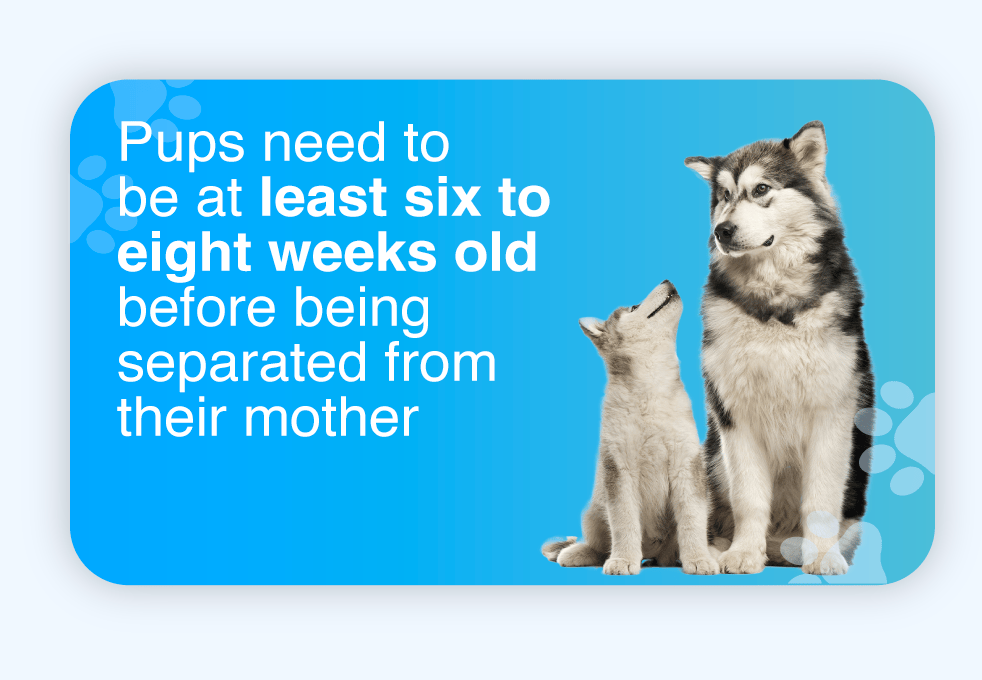
This is one of the most important questions to ask a dog breeder. A big red flag for any breeder is when they offer to allow you to take your new furry friend home sooner than eight weeks. Pups need to be at least six to eight weeks old before being separated from their mother, both to ensure they’re fully weaned, and to prevent any emotional distress for either mom or pup.
You’ll also want to ask the breeder how pick-up normally works, and whether they’ll be sending you home with any specific instructions or recommendations.

Aside from a wormy puppy being one of the grossest things ever, worms can cause massive health problems in dogs. In order to ensure your new buddy is in tip-top health, they’ll need to be dewormed, and should have received their initial vaccinations.
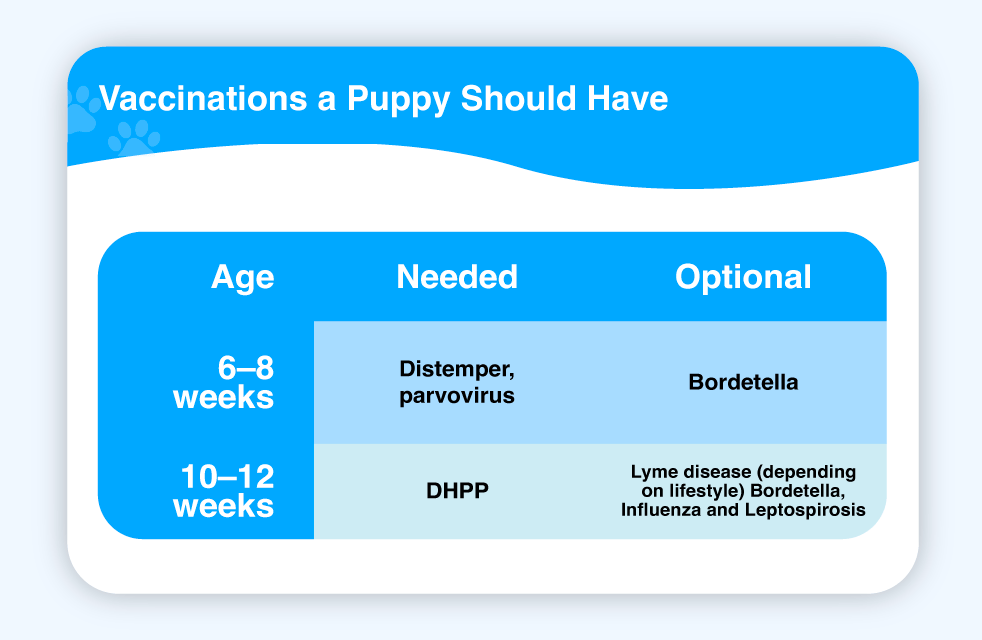
When it comes to what questions to ask a dog breeder in terms of vet-related queries, you should also ask the breeder if the pups have been microchipped. If not, then they should be able to advise you on how and when to get it sorted. This is super important for ensuring your pet can get back to you safely if they ever manage a great escape!

Though your new puppy isn’t likely to come to you fully housetrained, and accidents will probably happen (we’d advise investing in a good carpet cleaner!), the pups should at least have started pad training. A good breeder won’t allow the dogs to live in a home with animal waste lying around, and the sooner they’re trained to pee and poop in the right place the better!

While some illnesses in dogs are very visible, some aren’t quite as obvious, and you may miss them if you’re not a pro. That’s why it’s a good question to ask the breeder is—how is the health of the litter, as well as the health of the puppy’s parents?
As well as your breeder needing to have the correct registrations and certifications themselves, you should be given a puppy pack when you go to pick up your new family member. It will include various bits of documentation, which should include the following.
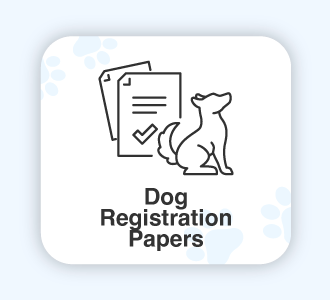
These papers serve as proof that your pet has been registered with an official institution, such as the American Kennel Club. Your dog will receive a unique registration number, which will be extremely valuable if your pup ever gets lost.

These documents will inform you of any known health issues with the puppy or its parents. Remember, some health problems can be genetic, so if your dog’s mom or dad has a health problem, it’s best to be aware of it so that you can keep an eye out for similar problems with your pet.
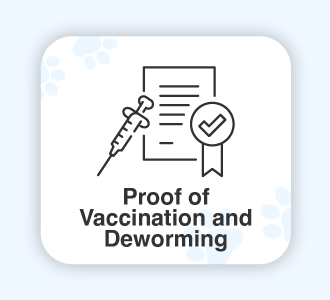
The vet who carried out your pup’s vaccinations and deworming will have provided the breeder with the relevant documents—which will then be given to you. As well as confirming they’ve had all the necessary treatments so far, the vaccinations, and medications they’ll need in the future will be listed for you too, so you’ll know exactly what to do and when.

A certificate showing your dog’s family tree isn’t just an adorable piece of doggy family history, it’s also necessary if you want to confirm your puppy’s pedigree and lineage.
When it comes to deciding whether you're comfortable buying your pet from a certain breeder, getting these questions for breeders answered is just part of the decision making process.
The bottom line is that if you don't feel comfortable purchasing from a particular breeder, go with your gut. Though you may be tempted to 'rescue' a dog from a bad breeder by buying the pup and bringing it home, in the end, you'll be giving money to a breeder who earns a living mistreating animals, and the cycle will continue.
If you're concerned about the welfare of dogs under a certain breeder's care, it's best to contact your local law enforcement agency. You can also file a complaint with the kennel club associated with the breeder, or get in touch with animal welfare charities such as the ASPCA.